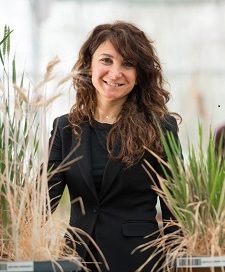Experts from the University of Nottingham are part of an international research group, that has received over £1.43million in funding to look at how artificial intelligence and data mining can be used to fight antimicrobial resistance (AMR).
The group has been awarded the funding from the Joint Programming Initiative on Antimicrobial Resistance (JPIAMR), for their project - FightAMR: Novel global One Health surveillance approach to fight AMR using Artificial Intelligence and big data mining.
JPIAMR is an international collaborative platform engaging 29 nations and the European Commission to tackle antimicrobial resistance (AMR). This is done in close collaboration with the 29 member countries and support from the European Commission.
FightAMR is a collaboration between experts at the University of Nottingham, the University of Pretoria (South Africa), the French Agency for Food, the Environmental and Health Safety (France), Agroscope, Food Microbial Systems (Switzerland), Flox-AI (UK),Fondazione IRCCS Ca' Granda Ospedale Maggiore Policlinico (Italy) and the University of Milan (Italy).
The team were successfully chosen out of 91 proposals from 29 countries to receive the funding. The FightAMR project aims to develop the first EU-Africa AI-powered surveillance solution.
The team will aim to develop new AI-powered surveillance solutions to identify an increased risk of antimicrobial resistance (AMR) emergence and spread through the food-borne route based on the 'One Health' concept (i.e. transmission across humans, animals, the environment and food), and capable of detecting the appearance of known and novel AMR genes.

Dr Tania Dottorini from the School of Veterinary Medicine and Science at the University of Nottingham is one of the lead experts running the FightAMR study. She said: "While there have been many studies on AMR in livestock, the environment, and humans, they often focus on a specific sector and rely on a specific analysis (antimicrobial usage or whole genome sequencing) but not necessarily on integrated data analysis."
The goal of this research is to strengthen big data approaches to integrate surveillance across human, animal, environment with the food chain to assist interventions to prevent AMR caused by resistant enteric bacterial pathogens.
FightAMR offers a unique combination of industrial expertise: FloX-AI UK, deployment of AI solutions in the animal sector; and academic expertise in machine learning, bioinformatics, sequencing, cloud computing, microbiology, infection control, food safety, surveillance, epidemiology, and human health care providers and veterinarians.
Dr Dottorini adds: "We've forged a powerful alliance between the EU and Africa, marking the beginning of an extensive collaboration with a pioneering view. Our consortium boasts a dynamic and diverse blend of expertise, seamlessly combining AI, software development, microbiology, food science, human and animal health, and environmental science and many others. This is just the beginning of an extraordinary journey to fight AMR on a global scale."






